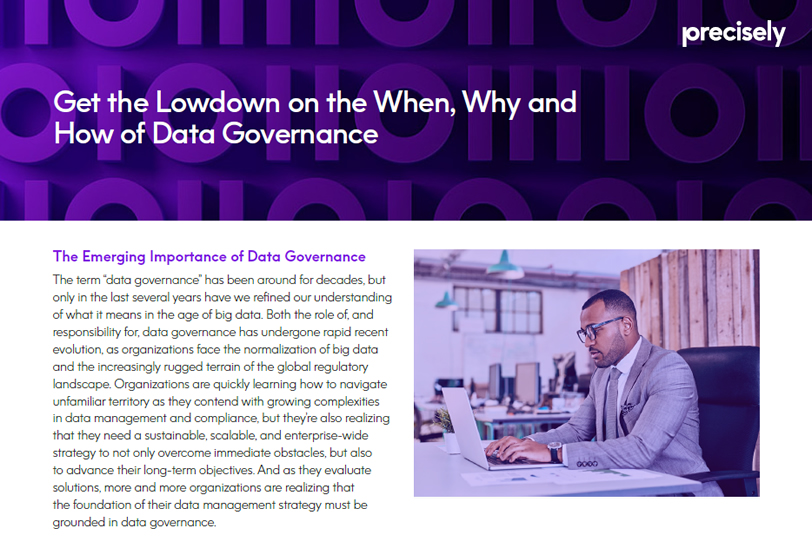White Paper
Get the Lowdown on the When, Why and How of Data Governance
The Emerging Importance of Data Governance
The term “data governance” has been around for decades, but only in the last several years have we refined our understanding of what it means in the age of big data. Both the role of, and responsibility for, data governance has undergone rapid recent evolution, as organizations face the normalization of big data and the increasingly rugged terrain of the global regulatory landscape. Organizations are quickly learning how to navigate unfamiliar territory as they contend with growing complexities in data management and compliance, but they’re also realizing that they need a sustainable, scalable, and enterprise-wide strategy to not only overcome immediate obstacles, but also to advance their long-term objectives. And as they evaluate solutions, more and more organizations are realizing that the foundation of their data management strategy must be grounded in data governance.
The recognition of data governance model as a critical management mechanism is widely recognized. But exactly how these leaders define data governance, and the initiatives they have undertaken, may vary widely. It can cover a broad scope of initiatives, and while business glossaries and data dictionaries are critical elements, a data governance program must be both comprehensive and strategic to yield maximum value.
As you consider your organization’s data governance approach, you need to consider the following questions:
- How do we define data governance?
- When does my organization need to implement data governance?
- What do we seek to accomplish through data governance?
- Why is data governance important to my business?
The fact is, data governance is often misunderstood and misunderstanding often leads to underestimation. Executives hesitate to allocate scarce budget dollars to data governance initiatives without quantifiable value. But an enterprise-wide approach to governance serves many purposes, not least among them the need to increase the value of organizational data assets—which can result not only in short-term operational impact, but long-term returns.
Read this white paper explores a data governance model to increase the value of organizational data assets and for short-term operational impact and long-term returns.
